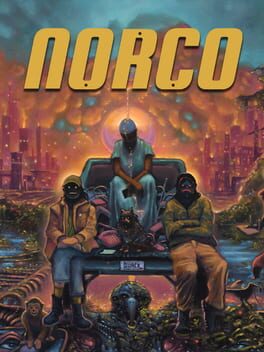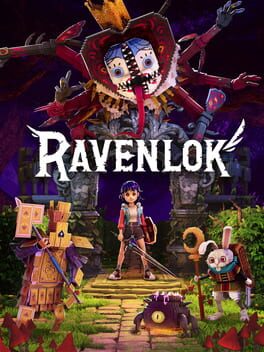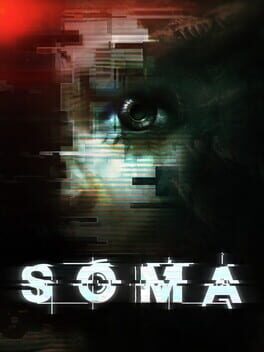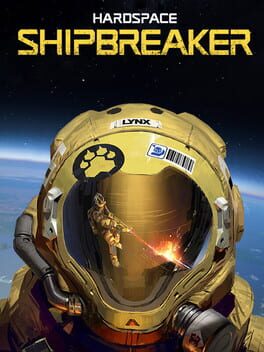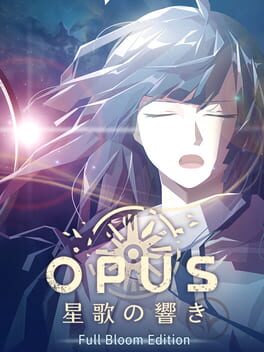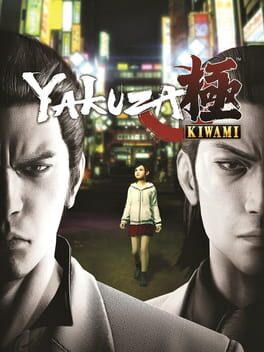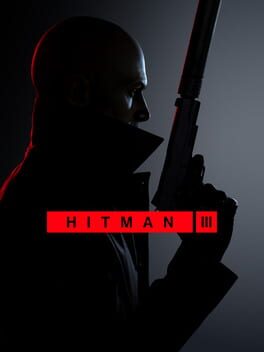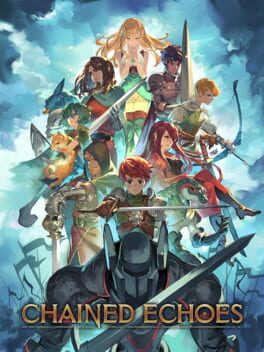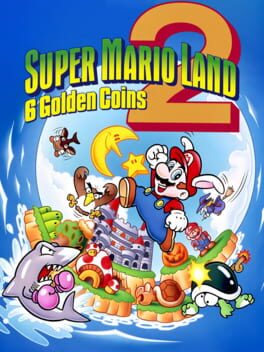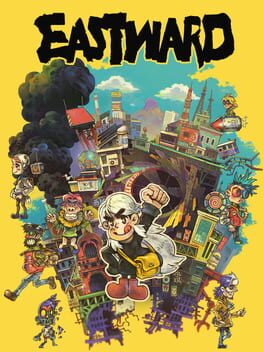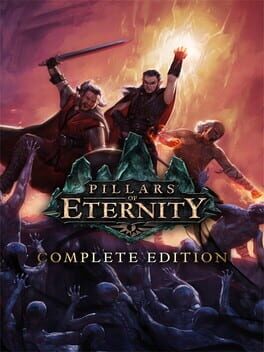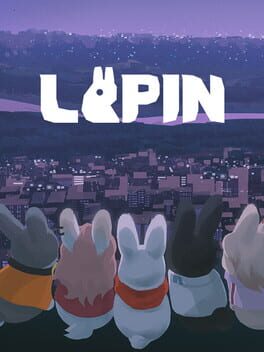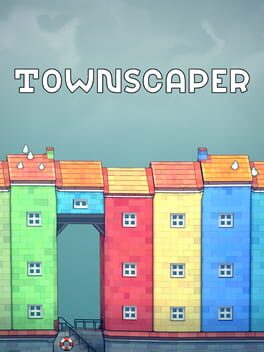MagoDaZueira
2022
The thing about magical realism is how it constantly alternates between the surreal and the mundane, how those two are mixed together so as to form a new, cohesive whole.
Now, calling Norco a straight-up magical realist piece of media doesn't feel that coherent, even if there are some heavy inspirations and aspects from the genre as a whole. It dabbles in Noir, too. Also, it's surely sci-fi, as wide-ranging as that genre is, and most certainly cyberpunk, even though calling it just that does close to nothing towards describing what Norco actually is. But then, like, what even is it?
It's pretty much its own thing. Sure, it draws from multiple sources, as stated above, but enhances them all with a very tangible, physical even, setting. Norco is a real city in real life, and it's clear just how much effort and research went into crafting the places you go to when faring through this digital reflection of the city. As such, more than cyberpunk, more than sci-fi even, this game is a bleeding into and from real life, an exchange with it, leaving behind a surreal trail of oil, injected into the mundane.
I said before that I don't really see Norco as an actual magical realism game, and that is probably because of that shock. It doesn't mix in-game mundane with in-game surreal. Instead, it feels almost like a mixture of the mundane, overlooked aspects of life itself, with the surreal. That connection is further explored through the characters. They are great, with smart writing and down to earth motivations. However, with each passing moment, more and more crazy sci-fi things happen to them, so that at some times it's possible to feel a disconnection between the story and the real world. Increasingly, the lives of these people, so outshone by the incessant flames of factories and industry, can’t help but feel surreal. And yet they aren’t. At the peak of its weirdness, Norco throws its physicalness at your face, reminding you how tangible these people, their problems, and their lives are. The weirdness keeps on growing, but the alternation it does so well never leaves you.
In the end, it's pretty much insane just how well put-together Norco is, especially considering how much it was going for. The presentation plays a big part in keeping the themes and setting consistent at most times. I mean, have you seen just how insane the pixel art in this thing is? It somehow made me thoroughly enjoy looking at its various sunset skies for hours on end, appreciating them progressively more as it became clear how the art direction influenced that "realness" of it all.
My main issue with this game is that I feel like there wasn't enough time for stretching out most of the characters. The writing and set up for them, as on point as they are, deserved some more space and time for shining to their full potential.
Upon finishing the game, I was amazed by how many things were bursting in and out of my brain. Again, this game is many things, and trying to wrap my head around it ha s been no easy feat. Maybe that is because some things are just not supposed to be "wrapped at", constantly changing and ever expanding. I at first thought that upon laying down some of my ideas in the form of this review, maybe I would be less dazed then than I was at that initial moment, but I feel just as stunned now, if not even more, by Norco's various aspects. That, of course, just goes to show how lingering the experience of playing it is.
This is game is different, and is boldly so. Albeit for sure not without its flaws, there's no way for me not to consider this a worthwhile experience for everyone with a minimum interest in sci-fi, noir, cyberpunk, text-heavy games, crying, quirkiness, weirdness, and/or talking birds. And everything in between.
Now, calling Norco a straight-up magical realist piece of media doesn't feel that coherent, even if there are some heavy inspirations and aspects from the genre as a whole. It dabbles in Noir, too. Also, it's surely sci-fi, as wide-ranging as that genre is, and most certainly cyberpunk, even though calling it just that does close to nothing towards describing what Norco actually is. But then, like, what even is it?
It's pretty much its own thing. Sure, it draws from multiple sources, as stated above, but enhances them all with a very tangible, physical even, setting. Norco is a real city in real life, and it's clear just how much effort and research went into crafting the places you go to when faring through this digital reflection of the city. As such, more than cyberpunk, more than sci-fi even, this game is a bleeding into and from real life, an exchange with it, leaving behind a surreal trail of oil, injected into the mundane.
I said before that I don't really see Norco as an actual magical realism game, and that is probably because of that shock. It doesn't mix in-game mundane with in-game surreal. Instead, it feels almost like a mixture of the mundane, overlooked aspects of life itself, with the surreal. That connection is further explored through the characters. They are great, with smart writing and down to earth motivations. However, with each passing moment, more and more crazy sci-fi things happen to them, so that at some times it's possible to feel a disconnection between the story and the real world. Increasingly, the lives of these people, so outshone by the incessant flames of factories and industry, can’t help but feel surreal. And yet they aren’t. At the peak of its weirdness, Norco throws its physicalness at your face, reminding you how tangible these people, their problems, and their lives are. The weirdness keeps on growing, but the alternation it does so well never leaves you.
In the end, it's pretty much insane just how well put-together Norco is, especially considering how much it was going for. The presentation plays a big part in keeping the themes and setting consistent at most times. I mean, have you seen just how insane the pixel art in this thing is? It somehow made me thoroughly enjoy looking at its various sunset skies for hours on end, appreciating them progressively more as it became clear how the art direction influenced that "realness" of it all.
My main issue with this game is that I feel like there wasn't enough time for stretching out most of the characters. The writing and set up for them, as on point as they are, deserved some more space and time for shining to their full potential.
Upon finishing the game, I was amazed by how many things were bursting in and out of my brain. Again, this game is many things, and trying to wrap my head around it ha s been no easy feat. Maybe that is because some things are just not supposed to be "wrapped at", constantly changing and ever expanding. I at first thought that upon laying down some of my ideas in the form of this review, maybe I would be less dazed then than I was at that initial moment, but I feel just as stunned now, if not even more, by Norco's various aspects. That, of course, just goes to show how lingering the experience of playing it is.
This is game is different, and is boldly so. Albeit for sure not without its flaws, there's no way for me not to consider this a worthwhile experience for everyone with a minimum interest in sci-fi, noir, cyberpunk, text-heavy games, crying, quirkiness, weirdness, and/or talking birds. And everything in between.
2023
Ravenlok felt like a single giant fetch quest in the form of a game. The main problem ends up being the lack of depth in basically all its aspects, like, the graphics are stunningly beautiful, and there are some really interesting settings, but since there aren't actually meaningful interactions with these beautiful places they end up not being remarkable as well. The same goes for the story and themes, which, heavily inspired by Alice, could go to some pretty quirky places, but choose not to.
I wouldn't say this is that bad of a game, though. Especially when comparing it to Cococucumber's last game, Echo Generation, I felt Ravenlok to be way less bloated, and straight to the point. As such, even though the lack of depth is a consequence of too few ideas being thrown into the mix, I guess it could be even worse if there were more half-assed mechanics unnecessarily bloating it.
I had fun in some moments, but was bored throughout way more of them.
I wouldn't say this is that bad of a game, though. Especially when comparing it to Cococucumber's last game, Echo Generation, I felt Ravenlok to be way less bloated, and straight to the point. As such, even though the lack of depth is a consequence of too few ideas being thrown into the mix, I guess it could be even worse if there were more half-assed mechanics unnecessarily bloating it.
I had fun in some moments, but was bored throughout way more of them.
2015
Playing Soma was one of the most unique gaming experiences I've ever had. That is, most of all, due to how tightly tied to this specific medium it is, which is something that most of the other titles, especially high-budget ones, tend to ignore. Sure, most of them shoot for what they consider fun or engaging, which is are also concepts usually related to games of any kind, but never really try to embrace the various aspects surrounding a game.
Some experiences such as Soma, though, require the presence of a player interfacing with it to function, to serve its purpose. Playing through this game is intense, maybe even exhausting, and that is probably not an experience that every player will share, maybe not even most of them will. I say that because it was such a personal experience that I just can't fathom what others would feel while playing, and that's just a byproduct of that fourth wall-breaking connection between player, protagonist and game world. Through philosophical propositions, horror both psychological and even physical, with the voracity and fatality of what life has become, of what an AI considers human life to be, and ultimately through loneliness given to both the main character and the player behind him to ponder about ask the other aspects, Soma expands beyond the game. When reflecting upon it, which is frequent given its nature, it's almost as if it inhabited you, felt your feelings and twisted them ever again with another smart gut punch, physical and psychological.
It's actually funny that I felt almost violated by the game through its duration, since by the end of it, I felt like nothing short of a parasite, feeling feelings not mine, fighting a fight I got no stakes in. Me, a human being, looking through the eyes of the leftover of humanity, trying to save a body that wasn't mine.
Some experiences such as Soma, though, require the presence of a player interfacing with it to function, to serve its purpose. Playing through this game is intense, maybe even exhausting, and that is probably not an experience that every player will share, maybe not even most of them will. I say that because it was such a personal experience that I just can't fathom what others would feel while playing, and that's just a byproduct of that fourth wall-breaking connection between player, protagonist and game world. Through philosophical propositions, horror both psychological and even physical, with the voracity and fatality of what life has become, of what an AI considers human life to be, and ultimately through loneliness given to both the main character and the player behind him to ponder about ask the other aspects, Soma expands beyond the game. When reflecting upon it, which is frequent given its nature, it's almost as if it inhabited you, felt your feelings and twisted them ever again with another smart gut punch, physical and psychological.
It's actually funny that I felt almost violated by the game through its duration, since by the end of it, I felt like nothing short of a parasite, feeling feelings not mine, fighting a fight I got no stakes in. Me, a human being, looking through the eyes of the leftover of humanity, trying to save a body that wasn't mine.
It's crazy how much stuff Nintendo got right here, especially considering this is only the 3rd entry on a series that, for some tens of future entries, would follow a formula fundamentally based on this game.
Because of this big influence ALTTP had, though, many other modern titles, and not only Zelda ones, borrowed something from this formula and in many cases improved upon it. Being so, it's hard to dismiss how formulaic and basic some of its systems feel. That, however, is just a consequence of me having played a fair share of "Zelda-likes", so it's not a problem of that game per se, since these nowadays bland parts of it were revolutionary at the time of its release. Some aspects of the gameplay are included in that, but I still like the constant risk/reward situations you get into while using the sword, especially because of the small hitbox its attacks have, and it feels, aside from some hiccups here and there, tightly-knit.
Those nitpicks aside, the brilliance of ALTTP's design is mesmerizing. The dungeons have a great flow, requiring some thinking from the player but always allowing that thought process to be as clear as possible, through scenery hints, simplicity and a linearity that doesn't restrict the player, while stops them to straying too far off the beaten path. The overworld, too, hardly ever had me totally lost like sometimes I was while playing the original LoZ, an improvement already visible in Zelda II, which offered a handful of tips on how to progress, but even more effective in this game. There is also the whole Light/Dark World mechanic, but that is obviously such a great idea that just by saying that it was masterfully implemented by Nintendo is already enough to state how well it fits the game, contributing to the already established by the first game sense of wonder and curiosity that emerge while exploring this Hyrule.
Awesome music, awesome design and ideas, rewarding exploration and good gameplay. It's an all-around excellent title that charmed me and pulled me in even after 30+ years of its initial release.
Because of this big influence ALTTP had, though, many other modern titles, and not only Zelda ones, borrowed something from this formula and in many cases improved upon it. Being so, it's hard to dismiss how formulaic and basic some of its systems feel. That, however, is just a consequence of me having played a fair share of "Zelda-likes", so it's not a problem of that game per se, since these nowadays bland parts of it were revolutionary at the time of its release. Some aspects of the gameplay are included in that, but I still like the constant risk/reward situations you get into while using the sword, especially because of the small hitbox its attacks have, and it feels, aside from some hiccups here and there, tightly-knit.
Those nitpicks aside, the brilliance of ALTTP's design is mesmerizing. The dungeons have a great flow, requiring some thinking from the player but always allowing that thought process to be as clear as possible, through scenery hints, simplicity and a linearity that doesn't restrict the player, while stops them to straying too far off the beaten path. The overworld, too, hardly ever had me totally lost like sometimes I was while playing the original LoZ, an improvement already visible in Zelda II, which offered a handful of tips on how to progress, but even more effective in this game. There is also the whole Light/Dark World mechanic, but that is obviously such a great idea that just by saying that it was masterfully implemented by Nintendo is already enough to state how well it fits the game, contributing to the already established by the first game sense of wonder and curiosity that emerge while exploring this Hyrule.
Awesome music, awesome design and ideas, rewarding exploration and good gameplay. It's an all-around excellent title that charmed me and pulled me in even after 30+ years of its initial release.
This game's focus is primarily its story, which is a very good and rewarding one. With that said, though, the gameplay can be a bit repetitive, yes, but the small struggles and micromanagement the player faces across the journey build up to a more intimate and maybe even more grounded relationship between the characters. The story can get a little too monotonous or dragged out at times, too, especially considering the characters' ultimate motivations, which are kinda static and similar to the others' ones. This, however, also serves a reason, and that reason, neatly executed as it is, almost totally overshadows these nitpicks.
That reason is the fact that Opus' story is, above all else, about the characters finding their purpose amidst a place as vast as a galaxy. The tale being told here is not one of a large scale and stakes, like the ones usually found in epic sci-fi operas. Rather, it's about a handful of people. About how they deal with loss, acceptance, and growing up. And it's about, in the end, how all of that feeds into and is guided by their inner-voice, their starsong. Because of this, some relationships take quite a while to develop, and while, for sure, that can harm the overall experience, it's also just a by-factor of how hesitant these characters are of diving deeper into this world so crowded with multiple "starsongs" noise (other people's lives), indifference and uncertainty. Being so, Jun's early efforts regarding his "clan's honor" and Eda's unwavering earnestness to find this "Banshee" thing are just ways for them to find certainty despite all of that.
With all of that, the small steps toward acceptance and the eventual conclusion shine even brighter, because, like with the gameplay stuff I mentioned, the friction adds intimacy and weight to the plot. Nearing the game's end, I started noticing more and more the real importance of lumen. This bright omnipresent thing is not just a sci-fi worlds' ore or something, but also a metaphor to the light one must follow, not by using their eyes or body, but by listening to their inner-voice, so that they can find, or at least try to, their purpose. This fits well with the overarching religious/spiritual thematic, but transcends that, the same way that people's will can transcend its time and space, the context it's set in, if it has to in order to be fulfilled. Through a religious afterlife lens, that comes in the form of a paradise. Through a more grounded one, that is visible in the lingering impact your have on others' lives and memories during and after you die. Or maybe you don't need to transcend shit, and are satisfied just by knowing you tried, even if for a tiny fraction of your life, to listen to your starsong.
Space and time weren't able to separate Jun and even Remi from Eda. There were the memories. There were the emotions, dissolved across the lumen. There were the flowers, in an everlasting full bloom. It wasn't too late for Eda to truly understand what it meant to be herself, nor did Jun wait for 60+ years in vain. Because, for even a tiny moment, there was the field of flowers. In finding each other again, they found themselves.
That reason is the fact that Opus' story is, above all else, about the characters finding their purpose amidst a place as vast as a galaxy. The tale being told here is not one of a large scale and stakes, like the ones usually found in epic sci-fi operas. Rather, it's about a handful of people. About how they deal with loss, acceptance, and growing up. And it's about, in the end, how all of that feeds into and is guided by their inner-voice, their starsong. Because of this, some relationships take quite a while to develop, and while, for sure, that can harm the overall experience, it's also just a by-factor of how hesitant these characters are of diving deeper into this world so crowded with multiple "starsongs" noise (other people's lives), indifference and uncertainty. Being so, Jun's early efforts regarding his "clan's honor" and Eda's unwavering earnestness to find this "Banshee" thing are just ways for them to find certainty despite all of that.
With all of that, the small steps toward acceptance and the eventual conclusion shine even brighter, because, like with the gameplay stuff I mentioned, the friction adds intimacy and weight to the plot. Nearing the game's end, I started noticing more and more the real importance of lumen. This bright omnipresent thing is not just a sci-fi worlds' ore or something, but also a metaphor to the light one must follow, not by using their eyes or body, but by listening to their inner-voice, so that they can find, or at least try to, their purpose. This fits well with the overarching religious/spiritual thematic, but transcends that, the same way that people's will can transcend its time and space, the context it's set in, if it has to in order to be fulfilled. Through a religious afterlife lens, that comes in the form of a paradise. Through a more grounded one, that is visible in the lingering impact your have on others' lives and memories during and after you die. Or maybe you don't need to transcend shit, and are satisfied just by knowing you tried, even if for a tiny fraction of your life, to listen to your starsong.
Space and time weren't able to separate Jun and even Remi from Eda. There were the memories. There were the emotions, dissolved across the lumen. There were the flowers, in an everlasting full bloom. It wasn't too late for Eda to truly understand what it meant to be herself, nor did Jun wait for 60+ years in vain. Because, for even a tiny moment, there was the field of flowers. In finding each other again, they found themselves.
2016
While the story and substories are kinda worse overall than they were in Y0, there are some really good and emotional moments scattered across it all. Yakuza Kiwami is a very solid entry, encompassing most of the aspects that make Yakuza so great, and is a thoughtfully crafted remake of the game that started what is probably my favorite series.
2021
Hitman 3 offers, once again, very cohesively crafted maps, and even though it doesn't innovate regarding how you play, I don't think it needs to considering what it set out to do. It is, most of all, a conclusion to the reboot trilogy, hence the all-in-one WoA package related to it. Also related to the conclusion of a story, I've enjoyed the narrative of this game quite a bit more than those of the previous games. It feels more personal and, because of that, more intense, and that is probably the deciding factor for me to consider it the best game in the series.
2018
2022
A real diamond in the rough if I've ever seen one.
Chained Echoes lacks polish, and with polish I don't exactly mean bug-fixing or balancing things around, as the word is commonly used, but rather refining and iterating on the ideas concerning its story, combat and progression. Sure, it was made by a solo dev, and polishing a game of this scope all alone is no easy task.
I really liked some of the ideas going into it, though, and think that this game's got enough personality so as to differentiate itself from its inspirations. The story beats can be quite tropey at times, but even then it was possible to perceive the charm behind it all.
An overall great experience that, even though shallow and unpolished sometimes, successfully states what it wants to, and is not only a neat love-letter to 16-bit JRPGs, but also a glimpse of the future of the genre and how it can evolve going forward.
Chained Echoes lacks polish, and with polish I don't exactly mean bug-fixing or balancing things around, as the word is commonly used, but rather refining and iterating on the ideas concerning its story, combat and progression. Sure, it was made by a solo dev, and polishing a game of this scope all alone is no easy task.
I really liked some of the ideas going into it, though, and think that this game's got enough personality so as to differentiate itself from its inspirations. The story beats can be quite tropey at times, but even then it was possible to perceive the charm behind it all.
An overall great experience that, even though shallow and unpolished sometimes, successfully states what it wants to, and is not only a neat love-letter to 16-bit JRPGs, but also a glimpse of the future of the genre and how it can evolve going forward.
Mario Land 2 is much more conscious than its predecessor that it's a Game Boy game, and because of that its entire design is very different from the usual Mario platforms. It's not at all designed around Mario's speed and fluidity of movement: rather, Mario Land 2 chooses a more compact level design over the more free and expansive one you often see in 2D Marios. Because of that, this game ends up with a much more static, less dynamic level design, making it also really easy (besides the last level, we don't talk about that). There's even more verticality here than I expected to see in a Game Boy game, all thanks to the level design trying to find ways to shine despite being unable to rely on Mario's speed. Not to say it ends up really actually shining, but hey, it tries to.
As such, the gameplay flow is wildly different from the plumber's other games, and while I prefer the pacing of those, I understand how such adaptations were necessary considering the system it was released in. Besides finding the level design here worse, though, I think it allowed for some truly unique level ideas, quirkier even that those present in SMB3 or SMW, which I already consider quite distinctive. Each world has its own theme, each one vastly different from the rest, and this is where Mario Land 2 really shines. Its more methodic level approach complements the feeling of the surreal places Mario visits across the island, which intrigues the player even more exactly because of the slower pace of it all.
So yeah, while I do think its level design is quite boring and easy, it serves a purpose that sets the game apart from the rest of the series. Also, the soundtrack of both this and Mario Land 1 are actually kinda insane, and I have no idea how they managed to fit such banger themes into a Game Boy.
As such, the gameplay flow is wildly different from the plumber's other games, and while I prefer the pacing of those, I understand how such adaptations were necessary considering the system it was released in. Besides finding the level design here worse, though, I think it allowed for some truly unique level ideas, quirkier even that those present in SMB3 or SMW, which I already consider quite distinctive. Each world has its own theme, each one vastly different from the rest, and this is where Mario Land 2 really shines. Its more methodic level approach complements the feeling of the surreal places Mario visits across the island, which intrigues the player even more exactly because of the slower pace of it all.
So yeah, while I do think its level design is quite boring and easy, it serves a purpose that sets the game apart from the rest of the series. Also, the soundtrack of both this and Mario Land 1 are actually kinda insane, and I have no idea how they managed to fit such banger themes into a Game Boy.
2021
This has been mentioned a lot already, but there's no way to overlook just how great Eastward's presentation is. Its pixel art is one of the best I've ever seen, and the music is versatile and mostly feels fresh across the game's lengthy playtime.
This makes it even more unfortunate that the story didn't reach its full potential, which I could sometimes catch a glimpse of, but never fully grasp. The pacing is really slow, but even with the game dragging along so many moments, I never felt like the story beats were developed beyond a shallow level.
There were many characters that I really liked, but they lack a context around them to really shine. One aspect of that is the plot itself, with few and badly paced interesting situations for the characters to act upon. Also, the there's almost no world-building on this game, especially on a smaller scale basis like towns, character relationships and past events, which weakens the characters surroundings story-wise.
That last bit, especially, could be greatly expanded upon, even more so if you consider Eastwards' graphics, and how capable they are of depicting the game's post-apocalyptic world as lively but cohesively as it does. This would allow for truly unique and well fleshed out sceneries.
The gameplay is decent, but quite bland and derivative, almost not evolving conceptually throughout the entirety of the game. It works and I was able to vibe with it at times, but there's not a lot worth mentioning.
I really wanted to love Eastward. But the truth is that, while I don't love it, I actually do like it. I really like the characters, it's just a shame that they don't come to full fruition. And the story, inconsistently developed as it is, allows for glimpses of something much more interesting as a whole. Even though it may seem that I like Eastward just for the potential of a game that isn't actually there, I in truth do enjoy it for what it is, since even if there is a good amount of wasted potential written all over it, that is only so because the game underlying it all is charming, enticing and unique most of the times.
This makes it even more unfortunate that the story didn't reach its full potential, which I could sometimes catch a glimpse of, but never fully grasp. The pacing is really slow, but even with the game dragging along so many moments, I never felt like the story beats were developed beyond a shallow level.
There were many characters that I really liked, but they lack a context around them to really shine. One aspect of that is the plot itself, with few and badly paced interesting situations for the characters to act upon. Also, the there's almost no world-building on this game, especially on a smaller scale basis like towns, character relationships and past events, which weakens the characters surroundings story-wise.
That last bit, especially, could be greatly expanded upon, even more so if you consider Eastwards' graphics, and how capable they are of depicting the game's post-apocalyptic world as lively but cohesively as it does. This would allow for truly unique and well fleshed out sceneries.
The gameplay is decent, but quite bland and derivative, almost not evolving conceptually throughout the entirety of the game. It works and I was able to vibe with it at times, but there's not a lot worth mentioning.
I really wanted to love Eastward. But the truth is that, while I don't love it, I actually do like it. I really like the characters, it's just a shame that they don't come to full fruition. And the story, inconsistently developed as it is, allows for glimpses of something much more interesting as a whole. Even though it may seem that I like Eastward just for the potential of a game that isn't actually there, I in truth do enjoy it for what it is, since even if there is a good amount of wasted potential written all over it, that is only so because the game underlying it all is charming, enticing and unique most of the times.
The game's got its fair share of problems, such as lots of bugs (at least on Xbox), some even locking me out of quests, some missed potential with the Stronghold mechanic and a lack of things to spend money on.
All of those faults, though, are buried by how good this game is. Eora is one of the most interesting fantasy worlds I've ever seen, and that's not because of its sheer size and scope, like many other world-building rely so much on. Instead, Obsidian created a cohesive and alive lore, that knows what it is and what themes it encompasses, while also leaving room for questions and subjectivity.
The strengths of Pillars of Eternity's lore peak with the White March expansions, imo, as it seems that since Eora was already established by the base game, all that was left for them to do was to explore and build upon the strong world-building, addressing interesting themes and having story beats only made possible by how cohesive the lore foundation is.
Because of that, I'm very excited to play Pillars II, which will probably solidify even more just how awesome this Obsidian's world is for me, and after that Avowed.
This is the second CRPG I've ever played, the only other one was Dragon Age: Origins a couple of years ago, and I didn't think I would ever love another one as much DA. Glad to see I was wrong, because, even though I still think Dragon Age is a slightly better game, Pillars of Eternity charmed me so much that its world is one of my gaming favorites now.
All of those faults, though, are buried by how good this game is. Eora is one of the most interesting fantasy worlds I've ever seen, and that's not because of its sheer size and scope, like many other world-building rely so much on. Instead, Obsidian created a cohesive and alive lore, that knows what it is and what themes it encompasses, while also leaving room for questions and subjectivity.
The strengths of Pillars of Eternity's lore peak with the White March expansions, imo, as it seems that since Eora was already established by the base game, all that was left for them to do was to explore and build upon the strong world-building, addressing interesting themes and having story beats only made possible by how cohesive the lore foundation is.
Because of that, I'm very excited to play Pillars II, which will probably solidify even more just how awesome this Obsidian's world is for me, and after that Avowed.
This is the second CRPG I've ever played, the only other one was Dragon Age: Origins a couple of years ago, and I didn't think I would ever love another one as much DA. Glad to see I was wrong, because, even though I still think Dragon Age is a slightly better game, Pillars of Eternity charmed me so much that its world is one of my gaming favorites now.
2022
The gameplay, while almost scratching the Celeste/precision-platforming itch, doesn’t feel very fluid. The character speed often made me feel hindered, while lacking game-feel and inconsistent hitboxes added friction on tip of it.
The platforming challenges themselves are quite well thought out and offer great progression of ideas, that end up converging to some more complex levels later on in the chapter.
The overall game loop pacing, though, has some problems. Some unnecessary story beats often stop the flow for longer than they should, especially since the main way of progressing your friendship with the other rabbits is by exhausting all the dialogue they have available at all times they appear. Considering they usually appear sequencially in a short span of time, these filler dialogues added greatly to the bloatedness of the game’s pacing.
I enjoyed the presentation, from hand-drawn graphics to the music. The story, where it isn’t excessive, is pretty interesting, and the gameplay, while problematic, has the engaging qualities of your usual precision-platformer. With that, Lapin, even if it had the potential to be quite better through some specific tweaks, was worth a playthrough.
The platforming challenges themselves are quite well thought out and offer great progression of ideas, that end up converging to some more complex levels later on in the chapter.
The overall game loop pacing, though, has some problems. Some unnecessary story beats often stop the flow for longer than they should, especially since the main way of progressing your friendship with the other rabbits is by exhausting all the dialogue they have available at all times they appear. Considering they usually appear sequencially in a short span of time, these filler dialogues added greatly to the bloatedness of the game’s pacing.
I enjoyed the presentation, from hand-drawn graphics to the music. The story, where it isn’t excessive, is pretty interesting, and the gameplay, while problematic, has the engaging qualities of your usual precision-platformer. With that, Lapin, even if it had the potential to be quite better through some specific tweaks, was worth a playthrough.
2020
Townscaper’s creator wanted it to be more of a toy rather than a game, and he’s accomplished that pretty well.
It is relaxing, and made me constantly think about what each citizen of the little town I was building would do and how they’d relate to other people in there.
The camera sometimes doesn’t work very well, at least on console, but even then the game doesn’t get frustrating at all, which speaks for how cozy and tightly built it really is.
Not much of a standout, but a worthwhile and unique game all the same.
It is relaxing, and made me constantly think about what each citizen of the little town I was building would do and how they’d relate to other people in there.
The camera sometimes doesn’t work very well, at least on console, but even then the game doesn’t get frustrating at all, which speaks for how cozy and tightly built it really is.
Not much of a standout, but a worthwhile and unique game all the same.
